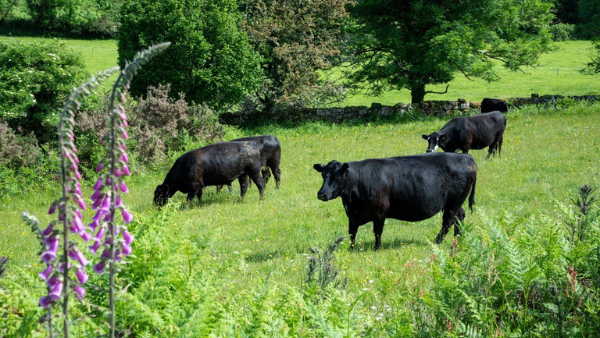Author
As a post COVID-19 trainee, whether I am working from one of our offices, working from home or attending networking or knowledge events, my days are always varied. I was recently fortunate enough to attend Michelmores’ Sustainable Agriculture Conference. The theme of the conference was “Restoring Habitats and Feeding a Nation”.
Agriculture partner Rachel O’Connor kicked off by highlighting several challenges faced by the agriculture sector, such as the Russian invasion of Ukraine, inflation, trade liberalisation, Brexit and of course COVID-19, which have brought the need for sustainability as well as food security in agriculture into a sharper focus than ever before. These events are always a good opportunity for trainees to keep up their commercial awareness!
Trainees at Michelmores have the opportunity to take one of their seats in the Agriculture team which offers practical and commercial advice to landowners, entrepreneurs, farming businesses, landed estates, institutions and others with interests in land and the wider rural economy. The team is the national specialist in agricultural law and a trusted advisor ranked as a top tier firm by independent legal guides, the Legal 500 and Chambers and Partners. So you’re in good company …
Commercial awareness for prospective applicants
Our guest speakers presented various ways in which they are encouraging sustainable agricultural practices and definitely gave plenty of ‘feed not food’ for thought. Speakers included:
‘Less and better’
Founder of Farm Wilder, Tim Martin, discussed how sourcing meat from farms with more sustainable farming practices can improve biodiversity, soil health and reduce pollution. Farm Wilder’s mission is to bridge the disconnect between consumers and factory farmed meat products which negatively impact our wildlife and planet.
‘Feed not food’
Founder of InsPro, Richard Small, discussed his mission to increase local nutrient circularity. By feeding food surplus to insects, which in turn will be used as a high-quality protein source for livestock, we can reduce carbon emissions created by importing soya from Brazil.
Michelmores’ Agricultural Team has contributed to the UK’s first report on the future of insect protein in pig, poultry and aquaculture feed: ‘The Future of Feed: a WWF roadmap to accelerating insect protein in UK feeds’, produced by WWF and Tesco. Please see Ben Sharples’ article here for more information.
‘Understanding nature’s assets’
Chief Scientist at Natural Capital Research Beccy Wilebore explained how measuring the baseline of your natural capital assets presents an opportunity to understand and enhance the natural value of your land. Natural Capital Research can help improve biodiversity, achieve greater carbon sequestration, pollination and recreation opportunities.
‘Banking on habitats’
Alexa Culver of the Environment Bank and Ben Sharples of Michelmores discussed an opportunity to create leases over low-yielding parcels of land to cultivate biologically diverse habitat banks.
Please also see the below articles by Ben Sharples and Sophie Walker, for an introduction to all things biodiversity and nutrient neutrality:
More about Michelmores
Michelmores’ trainees are fortunate enough to be offered a full and diverse range of seat options across our three departments, giving us plenty of opportunities to attend excellent events like this one.
Find out more about opportunities for graduates at Michelmores.



